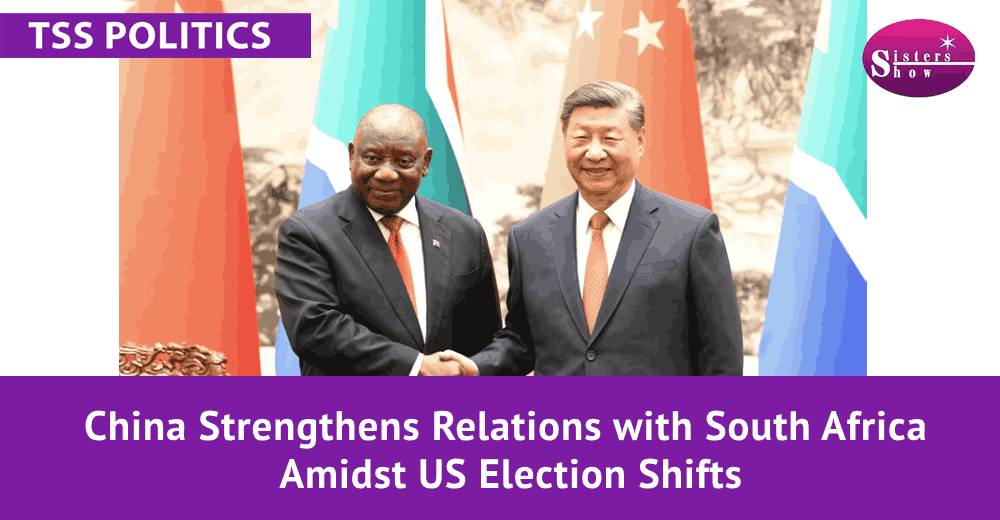
China Strengthens Relations with South Africa Amidst US Election Shifts
As Donald Trump resumed his presidency in the United States on November 6, 2024, global reactions were mixed. In South Africa, perspectives ranged from apprehension to cautious optimism, especially concerning the impact on international relations. The Trump administration’s anticipated approach may influence South Africa’s foreign policy, particularly its alignment with China, BRICS, and Russia. However, South Africa remains committed to its independent foreign policy, as constitutionally designated to the President.
Amid these global developments, South Africa welcomed a high-level delegation from the Communist Party of China (CPC) from November 5-7, 2024. This visit was a significant step in deepening the strategic relationship between China and South Africa, particularly in advancing the agreements made during President Cyril Ramaphosa’s recent visit to China. The two nations aim to reinforce their All-Round Strategic Cooperative Partnership, as outlined in the Beijing Summit of the Forum on China-Africa Cooperation (FOCAC).
In reciprocation, South Africa’s Minister in the Presidency for Planning, Monitoring, and Evaluation, Maropene Ramokgopa, led a high-level delegation to China. The visit focused on engaging China’s state-owned enterprises (SOEs) to understand their reform processes and effective management strategies. With South Africa’s own SOE reform underway, the knowledge exchange included valuable discussions with leaders from the State Assets Supervision and Administration Commission (SASAC), the China Reform Holdings Corporation (CRH), and other Chinese institutions. Meetings with the China Development Bank and the Asia Infrastructure Investment Bank (AIIB) also underscored commitments to support South Africa’s SOE and infrastructure reform through financial investment and capacity-building initiatives.
The enduring partnership between China and South Africa goes beyond diplomatic relations; it is rooted in mutual development goals. China has been South Africa’s largest trading partner for over 15 years, with bilateral trade reaching $23.5 billion in 2024. South African exports to China, including popular goods like wine, rooibos tea, and aloe gel, continue to see rising demand in China’s vast market. Investments by over 200 Chinese companies in South Africa have created more than 400,000 jobs, a vital contribution to South Africa’s economic growth and job creation.
In a move to reinforce party discipline and organizational principles, the ANC recently held discussions with the CPC delegation, led by Li Xi, Secretary of the Central Commission for Discipline Inspection of the CPC. The engagement addressed issues such as anti-corruption efforts, poverty alleviation, and party-building initiatives. In doing so, South Africa hopes to draw valuable lessons from the CPC on fostering accountability and promoting governance within its political structure.
The strengthened China-South Africa alliance reflects a shared commitment to sustainable development and non-aligned foreign policies, regardless of external pressures. Speculation has arisen in South African media about potential challenges to South Africa’s relationship with China and BRICS under the renewed Trump administration. However, the ANC leadership, particularly Secretary General Fikile Mbalula, remains resolute in prioritizing South Africa’s independent foreign policy.
As global political landscapes shift, China and South Africa’s bond offers a promising example of resilience and cooperation. These strategic engagements underscore the two nations’ commitment to a balanced, development-oriented international relationship that aligns with their mutual interests and the values of the Global South.
Don’t miss out on the latest updates. Stay updated with Politics news with The Sisters Show. Get all the details and never miss a beat!
Read More:- DA Highlights Cape Town Progress Amid Joburg’s Infrastructure Struggles




